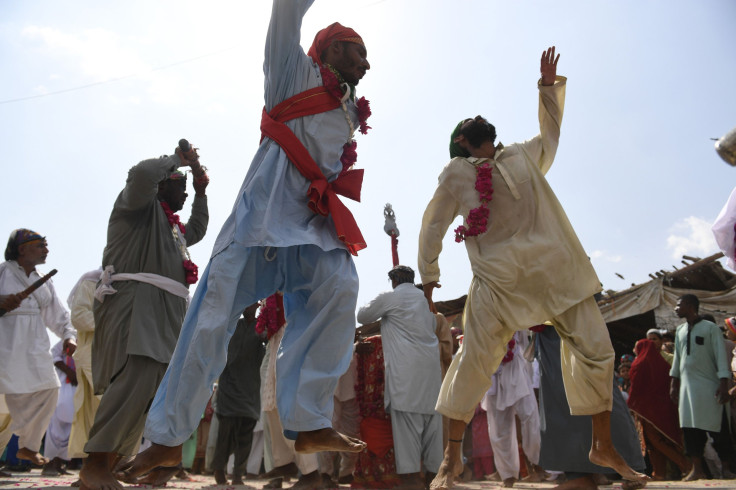Saudi Arabia Bans 'Dancing And Swaying' Ahead Of Upcoming Pop Concert

Saudi Arabia officials on Saturday announced a dancing ban during a pop concert scheduled in the country later this month. According to The General Entertainment Authority [GEA], "dancing and swaying" of any kind have been prohibited.
"Dancing would annoy other attendees and distract them," GEA official Mohammed al-Subaih told the Agence France Presse news agency. Subaih said the goal was to provide a show that "spread joy without offending public tastes and damaging national identity."
Concerts tickets came with a message that read dancing was "'strictly prohibited.'" The restrictions have been placed on a March 30 show featuring Egyptian entertainer Tamer Hosny in the Saudi city of Jeddah. Children under the age of 12 were also excluded, according to the news outlet.
Entertainment has long been a controversial issue in Saudi Arabia. For two decades, officials have disallowed concerts in the country and music from playing in public spaces including stores and restaurants.
Crown Prince Mohammed bin Salman and his kingdom have put forth efforts to modernize the country by easing laws restricting performance art and music.
The kingdom has also emphasized economic growth and increased household spending. Since the 32-year-old prince took office, the county has lifted sanctions on movies, television and music festivals.
Meanwhile, officials said on Tuesday that six people were arrested at a sports club in Cairo for acting in a play depicting police officer Suliman Khater, who in 1985 killed seven Israeli tourists in the Sinai Peninsula.
President Abdel Fattah al-Sisi said he considered the display "high treason" and "insulting" to authorities. "No one defames the army and police while I am here," Sisi said, according to The New Arab.
"Don't allow anyone to defame them. If anyone defames them, he is defaming all Egyptians. It's no longer a question of freedom of speech," he added.
© Copyright IBTimes 2024. All rights reserved.





















